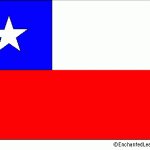 A new (Spanish language) news story contains a quote by a higher level government official to the effect that Chile may pull out of the TPP negotiations if the U.S. does not significantly moderate its intellectual property demands. This follows similar statements made last month in a public forum by a current trade official, a senior senator from the opposition party and a former lead trade negotiator. Today’s statement arrives from the Directorate General of International Economic Relations (Direcon), Rodrigo Contreras — Chile’s top trade official.
A new (Spanish language) news story contains a quote by a higher level government official to the effect that Chile may pull out of the TPP negotiations if the U.S. does not significantly moderate its intellectual property demands. This follows similar statements made last month in a public forum by a current trade official, a senior senator from the opposition party and a former lead trade negotiator. Today’s statement arrives from the Directorate General of International Economic Relations (Direcon), Rodrigo Contreras — Chile’s top trade official.
In the interview, Contreras posits that, although “it makes sense” for Chile to participate in the negotiation by the TPP because it was one of the countries who formed the original “P4” (with Brunei, New Zealand and Singapore) on which TPP is based, Chile is now reassessing whether it should remain in the negotiation:
Now obviously we have to assess what is on the table and suitability for Chile. It is not simply to be in an agreement to be and because we were always, but we will always evaluate the best and most convenient for the country and citizens.
One of the biggest differences in substance between the original P4 proposal and the TPP is on intellectual property issues. The P4 had a scant four pages on intellectual property that primarily affirmed TRIPS, with additional listings of geographic indicators and obligations to enter WIPO performances treaties. When the US entered the agreement and pushed it to expand into what is now the TPP, it came with hundreds of incredibly specific intellectual property demands, many of them exceeding any standard in any bilateral or multilateral agreement between any parties. But with Chile already having an FTA with the US giving it market access, officials have long been asking what is in for them to join a new agreement with massive new commitments but no new benefits. Now this questioning arrives in the public from the highest levels of Chile’s government.
Contreras makes clear in his statement that intellectual property issues are at the forefront of his mind when he questions whether Chile should continue in the TPP. The failure “to advance consensus” on intellectual property during the negotiations, he says,
“is one of the issues with which we have had a more moderate [position than the US], precisely because of the complexity of the issue and the implications of that discussion. Not for nothing is [intellectual property] one of the tables that attracts more participants. They are discussing the latest trends and positions on intellectual property in the world and, therefore, requires extensive internal analysis of the legal complexity.”
Asked whether the intellectual property chapter could be key in any decision of Chile to abandon the negotiations, Contreras said that it “could be,” explaining:
“Again, as in all negotiations and as a country in any negotiation, one must do an ongoing evaluation of the commitments that are gaining respect, and intellectual property is certainly a relevant issue. “
On the other hand, the interview suggests that the TPP could advance and finalize quickly if restricted to the traditional field of goods. The article describes these as “the item most advanced in the negotiation, since there is already a consensus in the exchange offer to all countries” the same benefits on trade in goods. Contreras also described services discussions as quite advanced.




